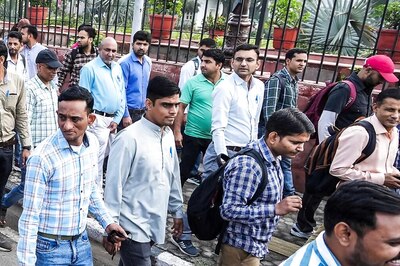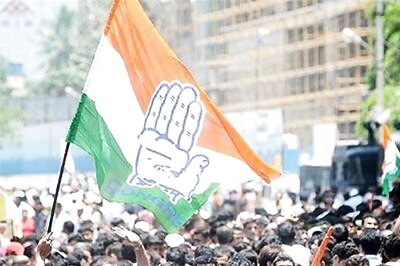
views
Bhutan, the South Asian nation and the Indian neighbour best-known for its happiness index, is facing economic headwinds.
The Himalayan country voted in general elections on Tuesday, with parties vowing to tackle the serious economic challenges being faced by the nation.
Though the country officially left the least developed countries (LDCs) category of the UN General Assembly last December, the economic indicators suggest that the country is far from economic prosperity. As of the end of October, the central bank reported reserves at $464.66 million, a sharp decline from $759.16 million a year earlier.
Unemployment
The prominent issues that the younger generation in the country is facing are chronic youth unemployment and a brain drain.
“Taking part in elections is about securing a better future for us,” 22-year-old student Ugyen Tshering, told AFP after voting in the chilly mountain air in the capital Thimphu, with Buddhist prayer flags fluttering in the background.
“Job opportunities in Bhutan are scarce and the new government should focus on solving this, so young people don’t leave abroad for greener pastures,” Tshering added.
The youth unemployment in the country is at a staggering 29 percent, according to the World Bank, while economic growth has sputtered along at an average of 1.7 percent over the past five years.
Mass exodus
Young citizens searching for better financial and educational opportunities abroad have left in record numbers since the last elections, with Australia as their top destination.
Around 15,000 Bhutanese were issued visas there in the 12 months before last July, according to a local news report — more than the preceding six years combined and almost two percent of the kingdom’s population.
Career civil servant Pema Chewang, 56, leader of the Bhutan Tendrel Party (BTP), said the country was losing the “cream of the nation”.
His opponent, former prime minister and People’s Democratic Party (PDP) chief Tshering Tobgay, 58, sounded the alarm over Bhutan’s “unprecedented economic challenges and mass exodus”.
His party’s manifesto quoted government statistics showing that one in every eight people were “struggling to meet their basic needs for food” and other necessities.
Why is Bhutan’s Economy Under Stress?
Bhutan’s economy has been disrupted ever since Covid pandemic as tourism, a small though significant earner of foreign currency, is yet to fully recover.
Tourism sector, which employs over 50,000 people and is one of the highest contributors to Bhutan’s revenues, was hit the hardest of any sector since the pandemic. Though the country has opened up to tourism, the pre-Covid numbers are far from near.
The country has been suffering from economic woes including petroleum prices, inflation, economic setbacks and loss of jobs.
The previous government pursued several projects to diversify the economy, including a special economic zone on the Indian border and plans with a Singapore-based company to raise funds for a cryptocurrency-mining scheme.
The country remains focused on its hydropower and tourism sectors, which generate revenue from outside the country. The two major parties have pledged a huge ramp-up of investment in hydropower, its primary source of energy.
(With inputs from agencies)



















Comments
0 comment